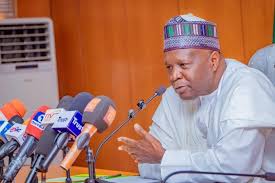The approved 2024 budget, which anticipated a revenue of N19.5 trillion against a total expenditure of N28.7 trillion, left a forecasted deficit of N9.1 trillion (3.8% of GDP). However, a supplementary budget of N6.2 trillion added further strain. MPC member Aloysius Uche Ordu disclosed that revenue collection only achieved 37.9 per cent of its target in the first half of the year, exacerbating fiscal pressures, despite an improvement in retained revenue compared to 2023.
The report also highlighted that 91.94 per cent of the full-year deficit target had already been reached by June. Ordu underscored that the budget remains heavily tilted towards recurrent expenses, primarily debt servicing, leaving limited resources for capital expenditure critical to economic growth.
In addressing the fiscal challenges, CBN MPC member Muhammad Sani Abdullahi emphasized the need to increase revenue and manage spending more effectively to stabilize Nigeria’s financial position. With the deficit reaching 7.6 per cent of GDP, Abdullahi noted that narrowing the gap is essential for sustaining macroeconomic stability.
The MPC cautioned that continued reliance on FAAC distributions to cover government expenses could strain liquidity in the banking sector, affecting the naira exchange rate.
Amidst these fiscal pressures, Nigeria’s external sector showed resilience, with a balance of payments surplus of $2.47 billion, partly due to reduced import bills following tighter monetary policies. External reserves rose to $37.44 billion by September, providing over seven months of import cover, and reached $40 billion by November. This bolstered the naira, which saw a slight appreciation.
The persistent fiscal imbalance underscores structural challenges within Nigeria’s financial framework, as volatility in revenue generation and rising expenditure widen the deficit. The MPC’s commitment to a tight monetary stance has curtailed import demand, yet ongoing fiscal deficits may compromise these efforts if revenue generation does not improve. The need for disciplined spending and fiscal reforms remains critical to stabilizing Nigeria’s economy.




